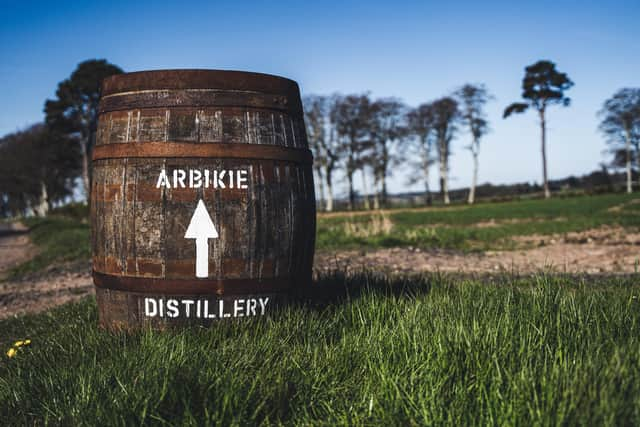What is the future for whisky and sustainability in Scotland?
With recent news that energy bills will rise again following the price cap increase, many households face huge costs this winter. But how do energy prices and ongoing sustainability drives affect Scotland’s many whisky distilleries?
Last month saw the news that Arbikie, the field-to-bottle distillery in Angus, was granted permission to build a wind turbine – a huge milestone in their bid to be a leading sustainable distillery. The 1mW wind turbine will export its generation to a green hydrogen hub at the distillery comprising an electrolyser, compressor and storage.
Advertisement
Hide AdAdvertisement
Hide Ad

Green hydrogen will be created by the electrolyser and the stored hydrogen will be used by a burner and boiler compatible with burning hydrogen to create steam to deliver the heat for distillation. Arbikie’s owners believe it will be the first distillery in the world to be powered with green hydrogen.
What about others? Tamnavulin distillery in Speyside, owned by Whyte & Mackay, runs on liquefied petroleum gas (LPG), which is a more cost-effective, cleaner fuel solution.
Chivas say Braeval is carbon neutral after it switched to a rapeseed residue based biofuel, and Glentauchers is next on the company’s hit list.
The distillery, which was founded in 1897, is planning to cut carbon emissions by 90 per cent in 18 months with a target of hitting carbon-neutrality within two years.
In January 2021, the Scotch Whisky Association (SWA) committed to reaching net zero by 2040 with the launch of a new sustainability strategy.
But of the recent energy price rises, SWA chief executive Mark Kent said: “The industry is delivering much needed growth for the UK economy through investment, job creation and rising revenue to the Treasury. But this survey reveals that distillers are investing in growth despite the economic headwinds and rising costs of business.
“We are at a critical juncture for many of our members. The autumn Budget must support the Scotch whisky industry, which is a crucial driver of growth in the economy, particularly across Scotland.”
Comments
Want to join the conversation? Please or to comment on this article.
